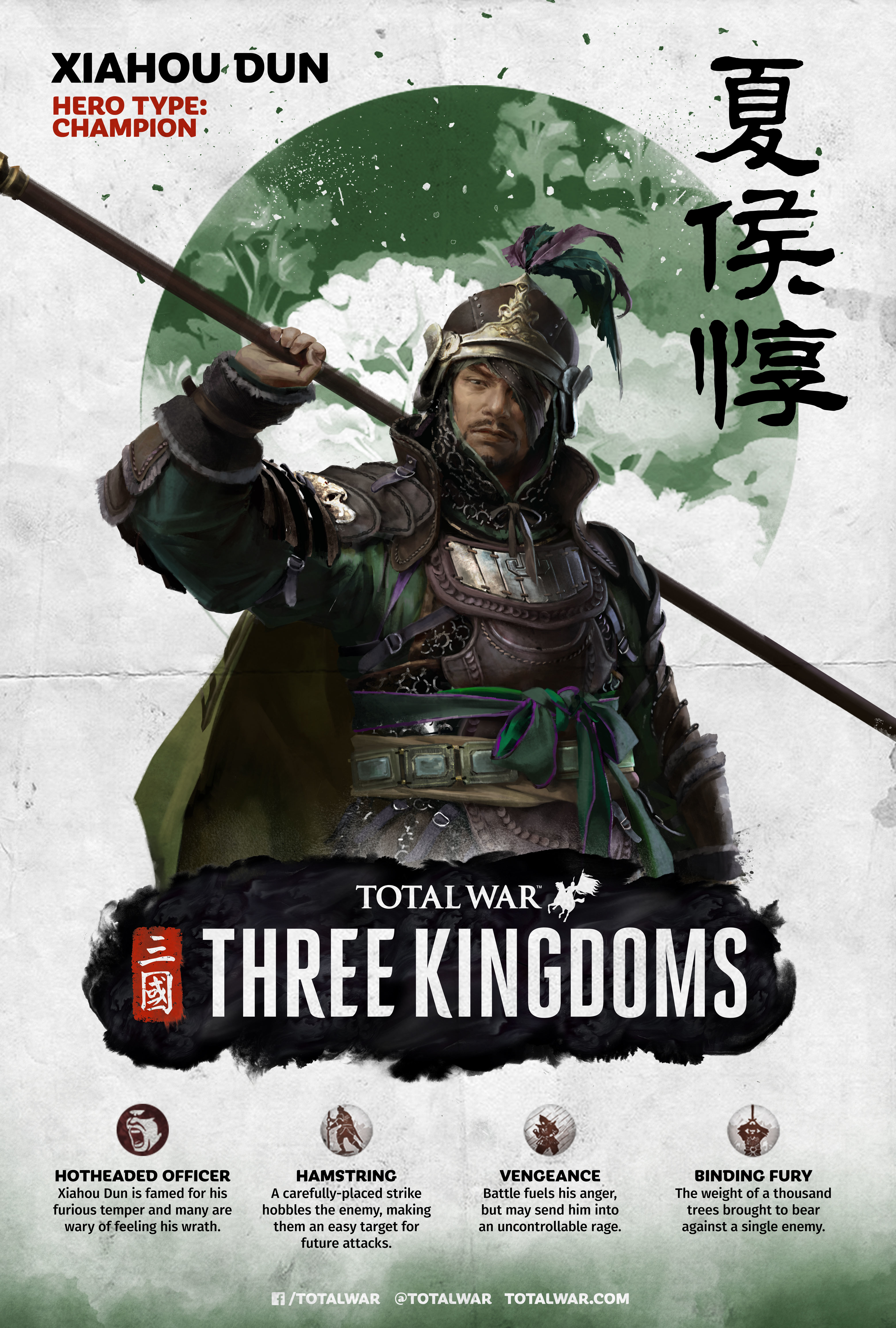


When the Yellow Turban Rebellion broke out in 184, Cao Cao was recalled to Luoyang and appointed Captain of the Cavalry ( 騎都尉) and sent to Yingchuan in Yu Province to suppress the rebels. Around 180, Cao Cao returned to court as a Consultant ( 議郎) and presented two memoranda against the eunuchs' influence in court and government corruption during his tenure, to limited effect. Cao Cao remained in this position for little more than a year, being dismissed from office in 178 for his distant family ties with the disgraced Empress Song. This prompted Jian Shuo and other higher authorities to ostensibly promote Cao Cao to the post of governor of Dunqiu County while actually moving him out of the imperial capital. An uncle of Jian Shuo, one of the most powerful and influential eunuchs under Emperor Ling, was caught walking in the city after the evening curfew by Cao Cao's men and was flogged. Upon taking up the post, he placed rows of multicolored stakes outside his office and ordered his deputies to flog those who violated the law, regardless of their status. Early career and Yellow Turban Rebellion (175–188) Īt the age of 20, Cao Cao was appointed district captain of Luoyang. There are two other versions of this comment in other unofficial historical records. At first, Xu Shao refused to make a statement however, under persistent questioning, he finally said, "You would be a capable minister in peaceful times and an unscrupulous hero in chaotic times." Cao Cao laughed and left. Cao Cao paid him a visit in hopes of receiving an evaluation that would help him politically. Īt that time, there was a man named Xu Shao who lived in Runan and was famous for his ability to evaluate a person's potentials and talents.

When asked, Cao Cao replied, "I have never had a fit, but I lost the love of my uncle, and therefore he deceived you." Afterwards, Cao Song ceased to believe his brother regarding Cao Cao, and thus Cao Cao became even more blatant and insistent in his wayward pursuits. When Cao Song went to see his son, Cao Cao behaved normally. In retaliation, Cao Cao feigned a fit before his uncle, who immediately rushed to inform Cao Song. According to the Biography of Cao Man, Cao Cao's uncle complained to Cao Song about Cao Cao's indulgence in hunting and music with Yuan Shao. Ĭao was known for his craftiness as an adolescent. Some historical records, including the Biography of Cao Man, claim that Cao Song's original family name was Xiahou and that he was thus a relative of Xiahou Dun. His father Cao Song was a foster son of Cao Teng, who in turn was one of the favourite eunuchs of Emperor Huan. įurther information: History of the Han dynastyĬao Cao was born in Qiao, Principality of Pei (present-day Bozhou, Anhui), in 155. He wrote many war journals, including commentary on The Art of War by Sun Tzu. Opposition gathered around the warlords Liu Bei and Sun Quan, whom Cao Cao was unable to quell.Ĭao Cao was skilled in poetry, calligraphy, and martial arts. However, his manipulation of Emperor Xian as a puppet and figurehead was heavily criticised, as state affairs were effectively controlled by Cao Cao instead of the emperor himself. Cao Cao was also very successful in restoring public order and rebuilding the economy as the grand chancellor. ĭuring the fall of the Eastern Han dynasty, Cao Cao was able to secure most of northern China-which was at the time the most populated and developed part of China. Cao Cao remains a controversial historical figure-he is often portrayed as a cruel and merciless tyrant in literature, but he has also been praised as a brilliant ruler, military genius, and great poet possessing unrivalled charisma, who treated his subordinates like family. As one of the central figures of the Three Kingdoms period, Cao Cao laid the foundations for what became the state of Cao Wei, and he was posthumously honoured as "Emperor Wu of Wei", despite the fact that he never officially proclaimed himself Emperor of China or Son of Heaven. He was the penultimate grand chancellor of the Eastern Han dynasty, and he amassed immense power in the dynasty's final years. info) 155 – 15 March 220), courtesy name Mengde ( Chinese: 孟德), was a Chinese statesman, warlord and poet.Cao Cao's name in regular Chinese charactersĬao Cao ( Chinese: 曹操 pinyin: Cáo Cāo) ( pronunciation ( help


 0 kommentar(er)
0 kommentar(er)
